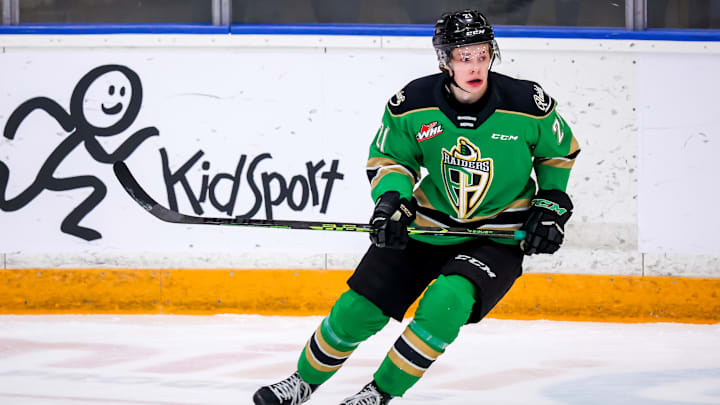Few teams are in an ideal position to add outstanding talent to their prospect pool and to improve their big club, so the NY Rangers are in an exclusive tier. It also lets them keep their organization stocked with prime prospects who can take their time developing, and this is why they will take a player who could go more than a few years without playing a single game for the Blueshirts for at least four years in the NHL Draft.
But that doesn’t mean the player general manager Chris Drury will pick on Friday is any less talented, nor does his game need a more significant amount of development than a strong contingent of prospects picked before him. That player is Ryder Ritchie, and his 6’0, 174-pound build (per his Elite Prospects profile) is one that is nowhere near ready for the rigors the NHL brings. Yet, anyway…
Listed at 5’10, 157 pounds at the mock draft I conducted manually on FC Hockey (not the simulation that made up the seven-round mock draft last week in which I snagged Sacha Boisvert with the 30th pick), it’s clear that Ritchie has already shown he can gain some size. He’s also 17 until August, so if there is no rush for most of these prospects to put on muscle, there is absolutely no rush for one of the draft’s younger players.
NY Rangers will take a consistent playmaker in the NHL Draft at No. 30
Ryder Ritchie’s numbers, while not as outstanding as some of the other prospects that went before him, are nonetheless consistent, as he put up 20 goals and 55 points across 61 games in 2022-23, good for 0.901 per contest. That’s also better than you see from many prospects so early in their respective junior hockey careers, and that number only improved in 2023-24 when he registered 44 points and 19 goals in 47 regular season games.
After conducting some basic math, that’s 0.936 points per game, and when you add in another seven points and three goals across five postseason appearances, Ritche ended the year with 51 points and 22 goals in 52 games, bringing that points per game total up to 0.980.
But his deceptive style is what makes Ritchie so tough to play against, and it’s something that will continue to trend north for the remainder of his junior hockey career. If Ritchie continues to improve his productivity, keeps playing a game that frustrates opponents, and continues to pack on size, he will be a sneaky good choice at No. 30 and no, I don’t always say that about my own predictions, as they don’t always align with who an organization should pick.
(Statistics powered by Elite Prospects)
